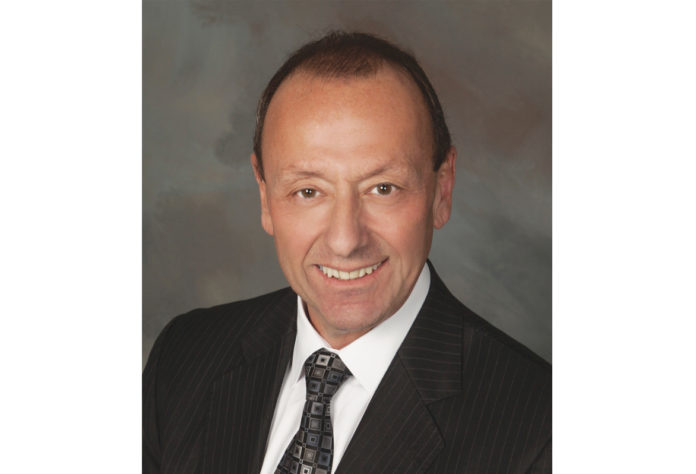by Andrew Klebanow
The summer of 2021 has been a surprise to casino operators across the nation. Where at the beginning of the year everyone feared that a recovery of business demand to pre-pandemic levels would be slow, the past few months revealed a pent-up demand for gaming entertainment. As business recovered this past spring, it was suspected that this spurt in demand would be short-lived, perhaps caused by an infusion of stimulus money into people’s pockets. Yet, demand did not falter this past quarter. Consumers, tired of being cooped up in their homes and more confident in the health and safety protocols that casino operators have implemented, continued to visit casinos and spend prodigiously.
What the pandemic also illustrated is that certain non-gaming amenities have played a far more important role in meeting customer needs than others. While many of the nation’s casino buffets remain closed, demand for lodging increased. In fact, casino operators have been hard pressed to accommodate both rated players and retail customers willing to pay premium rates for lodging. Demand for other kinds of dining have also increased.
Most operators had postponed major capital projects during the pandemic. Those that opened new amenities in 2021 did so because construction started prior to March of 2020. Now, with their hotels remaining full, other operators are dusting off plans for hotel expansions and the addition of other non-gaming amenities. New restaurant and lodging concepts, as well as expansion and re-purposing of public areas are all back on the table.
The question is, will those plans still meet the needs of gamers in a post-pandemic era or do they need to be modified? The problem with large capital projects is that they are expensive, and getting them wrong can have long-term implications. Therefore, consumer research prior to putting a shovel in the ground remains the most prudent course. In other words, ask what your customers think before you start digging that hole in the ground.
Consumer Insight Panels
As with any consumer research endeavor, the logical place to start is to talk with ones own customers, and the most effective method to do so are customer insight panels. These panels are inexpensive and provide valuable insights into the wants and needs of a casino’s existing players. To this end, start by inviting frequent and higher worth players to the property and conduct focus groups with those customers. All that is needed is a meeting room large enough to accommodate 12 people, an adjacent room where executives, architects and interior designers can observe the session on a video monitor, some snacks, and a reasonable honorarium for participants, usually in the form of $100 in free play. A trained moderator may be needed to corral players into staying focused on topics of discussion.
A discussion guide, designed to take participants through a series of questions, will be needed in order to elicit comments on proposed changes to the property. Ask customers what they like about the existing property, how it can be made better, and what the competition is doing particularly well. Then, present ideas for various improvements and elicit their opinions. Finally, ask them what they would like to see in terms of property improvements.
Next, venture out into the market and repeat this exercise with gamers who may not be your customers today. Using a focus group facility in the trade area or a hotel meeting room, invite groups of people recruited from the general population and screened for the propensity to gamble. The goal is to hear what gamers who are not particularly loyal to your property have to say. Using a similar discussion guide, probe participants for what the competition does particularly well, and what they would like to see in an ideal casino-resort. Again, invite the casino management team, the architectural team, and interior designers to hear what that demographic has to say.
Quantitative Analysis
The results of these customer insight panels and focus groups are qualitative in nature and are not necessarily reflective of the larger market. They are after all, only the opinions of a few dozen customers. Nevertheless, their comments allow for the formation of hypotheses that need to be tested among a larger audience. This is done through surveys. Online surveys have largely displaced telephone surveys as the primary method for quantitative research studies and for logical reasons. In the era of robo-calls and telemarketers, hardly anyone will take the time to speak with a market researcher calling during dinner hour.
First, establish research objectives for the survey. The next step is to design a pre-test instrument. A pre-test is a questionnaire administered to a small portion of the population. Its purpose is to make sure that the questions are not ambiguous, the results can be tabulated, and the questions fulfill the objectives of the research study.
With a sound research instrument, one can then administer the survey to a wider audience. Again, start with the casino’s database, segmented by monetary value. One will find that questions asked of premium players may yield different responses than those asked of those in the bottom tiers.
Finally, administer the survey to a larger population outside of the casino’s database. Again, participants should be screened for their participation in gaming entertainment and where they play. If they qualify, they can complete the survey. The results of the survey should then be summarized in a research report.
Lessons from the Hotel Industry
Some of the hotel industry’s most venerable brands were designed based on the methodologies described above. Courtyard by Marriott, Hampton Inn, and Embassy Suites, all created nearly forty years ago, were initially concepts that were tested among a variety of lodging customers. Those brands continue to succeed today because they were built to meet the wants and needs of their customers.
The lesson from these successful and time-tested brands is simple – ask before you dig.
Andrew Klebanow is Co-Founder and Senior Advisor at C3 Gaming (Casino Consultants Consortium), a diverse group of independent gaming consultants. He can be reached by calling (702) 845-7346 or email andrew@c3gaminggroup.com.














































